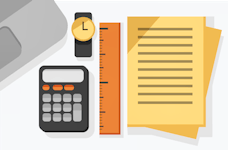How to Answer "What Is Your Greatest Weakness?" (With Examples - 2025)
All products and services featured are independently selected by WikiJob. When you register or purchase through links on this page, we may earn a commission.
- Why Do Interviewers Like to Ask This Question?
- Different Ways of Asking the Weaknesses Question
- How to Assess and Select a Weakness
- Is Overthinking a Weakness?
- Some Sample Answers
empty
empty
empty
empty
empty
- The STAR Technique (2025)
- Answers to Avoid
empty
empty
empty
empty
empty
- Follow-Up Questions
empty
empty
empty
- What If You Don’t Know Your Weaknesses?
- Final Thoughts
Being asked about your weaknesses in an interview is intimidating. After all, you’re there to show them how capable you are, not to talk about what you’re bad at.
But 'What are your weaknesses?' is a question commonly asked at interview – frequently paired with 'What are your strengths?' – so be sure to prepare for both.
Answering well requires walking a tightrope. If you don’t talk about anything that sounds like a plausible weakness, you come across as disingenuous or, worse, deluded as to your lack of shortcomings.
But if you're a little too honest or if your weakness is a critical one, you risk sabotaging your interview.
Unsurprisingly, not many candidates answer this question well.
This presents you with an opportunity to stand out; if you practice and prepare well, it can work in your favour.
A good answer shows that you’re self-aware and able to critically analyse your skills. It also shows that you’re willing to address your weaknesses and that you can remain calm under pressure.
Read on to find out how you can tackle this tricky question and turn your greatest weaknesses into your greatest interview strength.
Interviewers are looking to discover your weak points to see how you'll address them.
Why Do Interviewers Like to Ask This Question?
It does seem a little perverse. When candidates are doing their best to make a good impression, the interviewer asks them to talk themselves down.
However, interviewers can gain a huge amount of insight from this simple question (or a variant of it).
This question is popular primarily because of its effectiveness at getting the candidate to think deeply about themselves.
More specifically, interviewers might want to ask this question:
- To assess your character and personality
- To gauge your level of self-awareness and ability to reflect on your skills and any gaps
- To check that you don’t have any critical flaws that might affect your ability to perform in the role
- To see if you’re willing to work on your weaknesses
- To test your ability to maintain composure under pressure
Different Ways of Asking the Weaknesses Question
While this question is often asked outright, it can also take a variety of forms. Make sure you know what the interviewer is really asking so you don’t get caught out.
Here are a few of the other ways it can be phrased:
- "What would your employer or colleagues describe as your biggest weakness?"
- "Which of your current tasks or duties do you find most challenging?"
- "Which of this role’s tasks or duties would you struggle with the most?"
- "Have any difficulties or issues arisen in your current role?"
- "What is the biggest regret you’ll have on leaving your present job?"
- "Is there any area of your skill set that you feel still needs work?"
- "Tell me about a time when you let your team down"
While each of these questions (and many more) are all asking a similar question, you don’t want to come across as robotic, like you’ve prepared this answer purely by rote.
Understand that they’re asking for your weaknesses but take note of how exactly they posed the question. Tailor your response accordingly and it will come across as off-the-cuff, confident and fluent.
Being able to adapt to the questions you are being asked is an important interview skill. It not only demonstrates that you can deliver a good answer, but that you can think on your feet and have good communication skills.
How to Assess and Select a Weakness
This is the million-dollar question – how do you pick a good weakness to talk about in your interview?
The weaknesses you choose should ideally be:
-
Not fundamental to the job. You probably won’t get far if you’re applying for an accounting job and your weakness is that you’re awful with numbers.
-
Relevant. You should choose a weakness relating to relevant professional competencies. Answering with something like “I just don’t do enough exercise” sounds like you’re dodging the question.
-
Fixable. One of the most important parts of answering this question is to get across the idea that you actively work on your weaknesses. This means that your weakness needs to be something that you could feasibly improve through personal effort.
It is useful at this stage to have a thorough look at the job description. Pick out all the key skills and requirements and make sure that the weakness you choose does not apply to any of them.
One of the ways to choose a relevant weakness is to research the role thoroughly.
Knowing what the employer is looking for is the best way to avoid pitfalls and turn the question to your advantage.
For instance, if the position requires lots of teamwork and regular interaction with management, a good weakness to use might be that you find it difficult to stay motivated in roles where you feel isolated, or those in which you can’t learn from those around you.
That’s still a genuine weakness, but it’s one that’s largely negated by the role you have applied for. It also gets across the implication that you like the way their company works and would feel motivated there.
If the job involves thinking on your feet and using your initiative, your weakness could be that you become frustrated when you are expected to adhere to strict protocol at all times. This is still a plausible weakness and something that you can work on, but for this role, it could become a positive and suggests that you are well suited to the job.
It’s important that for each weakness you prepare to talk about, you have a relevant example ready to help you describe your weakness and demonstrate how you attempted to overcome it.
Perhaps you’ve completed a relevant course or joined a class or group. You might be getting help from a mentor or advisor, or have found tools that help you to correct your weakness on your own.
Finally, try to provide some concrete evidence of improvement. If leadership is your weakness, perhaps you have recently started managing someone and received positive feedback. Or if you have been improving your time management, describe how working more efficiently has impacted positively on a particular task or project.
Is Overthinking a Weakness?
Overthinking can be viewed as both a strength and a weakness; it is, therefore, not a strong answer to give when asked about your weaknesses at interview.
In some respects, someone that overthinks can be perceived to be unsure of themselves and their decision-making. You may be delaying your decision-making because you are scared of facing the consequences of your decisions.
This weakness could be particularly concerning to an interviewer so, if you really want to mention this at interview, make sure you show evidence of self-reflection and mention the steps you are taking to address this or how you have begun to use it to achieve a positive outcome.
Overthinkers could also be seen as careful perfectionists that take the time to consider all aspects of a decision so they don't miss anything. This is not really a weakness, it may be seen by the interviewer to be a veiled attempt at presenting a positive as a negative.
Some Sample Answers
To help you prepare for your interview, here are a few example answers that demonstrate the points mentioned.
Remember, the key is to select a weakness that isn’t fundamental to your ability to perform the role and then to demonstrate that you’re proactive about fixing that weakness.
Example 1
You are applying for an analyst position, largely working with numbers and data:
I don’t have much experience working directly with clients so my client-facing communication skills definitely need some work. I’m much more comfortable digging deep into the data and providing the analysis, rather than talking it through with a client.
However, I realise that experience working with clients directly would be a big help to the way I present my analysis so I’m very keen to improve that aspect.
This is an answer that’s honest and shows a good degree of critical self-reflection.
It’s a weakness that isn’t critical to the role but the candidate recognises the ways that fixing their weakness would help them in the areas they’re already strong in.
This answer also manages to sneak in a strength (digging deep into data and providing analysis of it).
Example 2
A more generic weakness that can be used for any role, with evidence of proactivity:
At the beginning of my career, I found that I was overwhelmed with the level of work expected of me. Scheduling everything was a big issue for me and I dropped the ball on some projects because I wasn’t able to give them my proper focus.
However, I attended a number of time-management seminars and have found my workload much more manageable since then, and I’m continuing to work on it.
Here, the candidate explains a weakness of theirs that could be a serious problem but immediately shows that they’ve already been taking significant steps towards fixing it and that they’ve made good progress so far.
That comes across as genuine and shows that the candidate is proactive and self-reflective.
Example 3
A weakness that isn’t critical and that is easily fixed:
In the past, I’ve tended to want to complete one project in its entirety before moving onto another. Of course, that can cause problems in a busy workplace. I know that, in the future, I need to be more comfortable switching focus when it’s needed.
This is the acceptable version of the 'I’m just too much of a perfectionist' answer.
It’s a problem a lot of people can relate to as it’s only natural that we want to see our work completed and followed through before switching focus. You’ll probably have the interviewer agreeing with you.
Again, though, it shows some self-reflection by recognising the issues that this approach can cause.
Example 4
I would say that I can be too direct. When I’m giving feedback to colleagues I try to be very honest but I have learned that sometimes my comments come across as brusque.
I do a debrief after each project and I realised that some team members felt I was being more critical than constructive, which wasn’t my intention.
I took part in a leadership course where we talked about the best ways to provide feedback and how we should tailor our communication style to different people and situations.
I’ve been working on applying all that I’ve learned and last week a colleague came to thank me for some feedback on a recent presentation. He said my comments had been really valuable.
The interviewee makes it clear that they were not being actively unpleasant to colleagues, but were aware that their communication skills needed work and this was creating some negative feeling at work. They took positive steps to improve those skills and offer a solid example of the progress they have made.
Example 5
I get very nervous about addressing large groups. I’m comfortable speaking up in team meetings and will happily give presentations to my colleagues at work. But in a more formal setting or in front of a crowd of strangers I do struggle.
I don’t want this to hold me back, so I’m trying to build my confidence in public speaking. Someone suggested that acting classes might help so I’ve signed up for a course at my local college.
And last month, I volunteered to give a presentation at a networking event I attend. There were about 50 people there and normally I would have been terrified at the thought of standing up in front of them. I was still nervous but I felt that the presentation went well. Actually, I ended up enjoying it.”
Many people can identify with a fear of public speaking. The interviewee makes sure to stress that they are not too timid to speak up at work at all, which could be a concern. They show initiative in how they are tackling this weakness head-on and provide clear evidence that their efforts are paying off.
Of course, any answer you give will need to be specific to both you and the role. Don’t make something up – you’ll come across as disingenuous and might not be able to handle any follow-up questions.
The STAR Technique (2025)
The STAR method is a fantastic approach for all interview questions. It’s a technique you should be familiar with and practice.
It’s a way of structuring any example-based response you give that ensures all the key components are there.
- Situation. Give the context of the example. What was the company and the project? Who was the client? Were you working in a team?
- Task. Move into the specifics and describe your role in the project and what your goal was.
- Action. Describe the actions that you took towards your goal. This should be specifically about your contribution, not the team’s.
- Result. Talk about the outcome of the actions you took. If you can, slip some numbers in here to make things more concrete.
While this method would typically be used when talking about your positive traits and achievements (after all, that’s mostly what you want to be doing in an interview), it’s still useful when talking about your weaknesses.
It helps keep your examples concise and engaging. The interviewer can easily follow your scenario from start to finish, getting all the important details along the way.
You can read more about the STAR technique, including how to use it most effectively, and find some example answers in our dedicated article on the STAR technique.

Always keep the STAR method in mind when describing your weaknesses in an interview.
Answers to Avoid
'What are your weaknesses?' is a minefield of a question and there are plenty of answers that really won’t do.
Learn what these answers are and what they have in common so you can be sure you never commit these interview sins:
Giving a Weakness That Is Actually a Strength
I’m just such a perfectionist. I don’t like substandard effort so I make sure all my work is perfect. This might mean that I work too hard but it’s worth it to me because it’s so annoying finishing work that’s less than perfect.
This candidate shows no humility and – more importantly – no evidence of self-reflection.
It will be clear to the interviewer that they are trying to dodge the question while at the same time over-selling themselves.
Giving a Weakness That Reflects a Bad Attitude
My weakness is that I just hate getting up in the morning. I snooze the alarm like ten times before finally dragging myself up. I look forward to the weekends so I can have a lie-in without worrying about getting up for work.
Almost no-one likes getting up early in the morning. This is not a weakness that reveals anything about you professionally.
Moaning about it won’t earn you much sympathy, especially when it implies that you might be late to work when your penchant for snoozing gets the better of you.
Furthermore, this answer shows no willingness or proactive drive to resolve the issue.
Giving an Answer That Undermines Your Ability to Do the Job
I’m not a great team player. I find it difficult to get along with people – I don’t really like taking orders from my superiors and I respond badly to any negative feedback.
Unless you’re applying for a job where you will be working in almost total isolation, this kind of answer will ring some major alarm bells.
While your answer should be honest, you do not want to reveal a weakness that would severely hinder your performance.
Giving a Weakness That Has Little or No Bearing on Your Professional Competencies
I’m scared of dogs. I got bitten by one as a child and now I can’t stand being around them. Sometimes it makes it quite awkward when I have to meet someone who I know has a dog.
Unless you’re applying for a job working with animals, this weakness is just irrelevant.
For the purposes of this question, save your childhood traumas for the therapist. It doesn’t tell the interviewer anything and will either sound like you’re oversharing (which could become awkward) or that you’re dodging the question.
Refusing to Answer the Question
I don’t really have any weaknesses, to be honest. In my last role, I performed really well and can't see where I could have improved.
Everyone has weaknesses. Everyone. From the fresh graduate to the most experienced CEO.
Giving this answer either paints you as dishonest or deluded, and neither of those are positive traits. It also displays a critical lack of self-reflection and can easily come across as arrogant.
In addition, avoid very vague or general answers that don’t give any relevant information. These will tell the interviewer that you can’t think on your feet.
If your answer isn’t honest, doesn’t reflect on your skills and your gaps, and doesn’t demonstrate a willingness to improve, then it needs some work.
Follow-Up Questions
You’ve answered the question. Phew, that’s that out of the way.
Or is it?
Don’t get caught out by the follow-up question.
There are many reasons why an employer might ask a follow-up question. It could be because your answer was particularly good and interesting, or it could be because it lacked something.
Or they might want to see how you think on your feet under pressure.
Here are a few examples of how the interviewer might follow up on your answer:
"How Has That Weakness Set You Back in Previous Situations?"
Here, they want a concrete example.
This could be because your answer sounded more like a strength dressed up as a weakness or it could be because your weakness sounded a little vague.
Regardless, they want to hear a definite example and a little more self-reflection on how your weakness has affected you.
"That Sounds More Like a Positive. Give Me an Actual Weakness."
You’ll get a response like this if they think you are reluctant to talk about a real weakness.
If it was a real weakness, consider how you worded it. Did you dress it up as a strength or severely undersell it?
If so, consider clarifying your answer and explaining why it is a weakness – ideally with a specific example to back it up.
Otherwise, this is the time to just be honest. Perhaps start by saying “Fair enough, you’re right, this question is always hard to tackle in interviews” and then follow up with a candid answer that really does reflect a weakness.
"If You Had to Pick Another Weakness, What Would It Be?"
Your answer might have sounded too rehearsed and they want to see if you can think on your feet.
This potential follow-up is the reason you need to prepare more than one weakness.
If you get this follow-up and haven’t prepared a second answer, you’d better be good at being spontaneous. Don’t risk it.
What If You Don’t Know Your Weaknesses?
If you’re struggling to come up with any weaknesses, it’s probably not because you’re perfect. After all, who is? But it can certainly be tricky to think about your own weaknesses.
Start by thinking back to your previous roles, projects, school or volunteer work. What did you struggle with?
- Perhaps you found it difficult to manage your time.
- Maybe you found leading a team more difficult than you expected.
- Maybe you don’t understand how your client-facing colleagues come across so effectively.
You might consider:
- Tasks or work-related skills that you find difficult or dislike
- Times you have failed or underperformed at work
- Any criticism you have received from supervisors
- Anything you have been told you need to work on
Common areas that might be applicable include:
- Time management
- Public speaking
- Leadership skills
- Sharing responsibility
- Numerical skills
If you find it tricky to assess your own personality, ask someone else to help. Try asking someone who knows you well (such as a friend or colleague) to be really honest about your areas of weakness.
Make a list of all your possible weaknesses. Just put down everything, big or small. Then, assess each of them by the criteria above:
- Is this weakness fundamental to the role I’m applying for?
- Is it a relevant weakness?
- Am I taking steps to improve in that area?
If a weakness passes each of those tests, then it should be a good one.
Final Thoughts
Questions along the lines of "What are your greatest weaknesses?" can be intimidating. However, they can be answered positively and even present you in a favourable light if you remember some key points.
Your answer should show self-awareness and a willingness to address your weaknesses.
Pick a weakness that is relevant, not crucial to the job and fixable.
Demonstrate how you are working on effectively addressing the weakness.
Practise the STAR method to structure an effective answer.
Remember the interviewer may use different terms when posing this question – make sure you understand what they are really asking.
Be prepared for follow-up questions. The interviewer might ask you to elaborate or describe further weaknesses.











